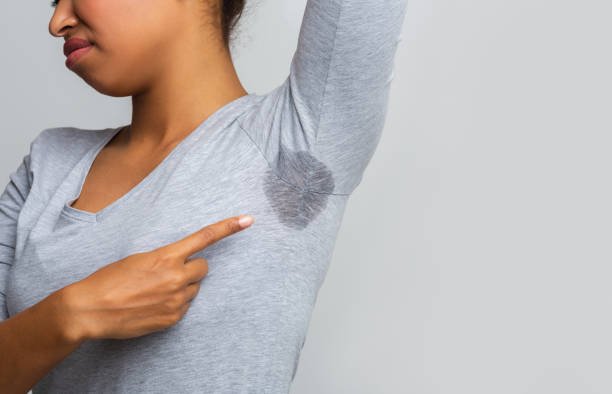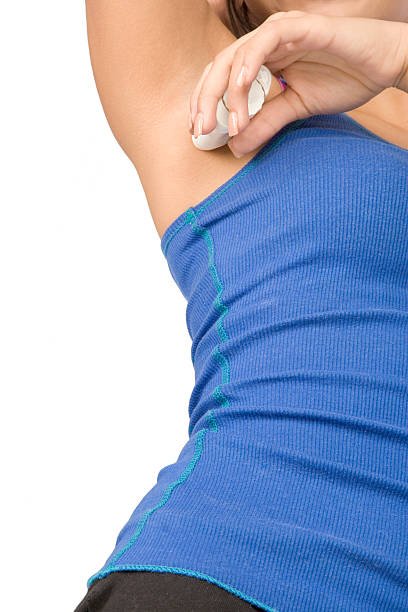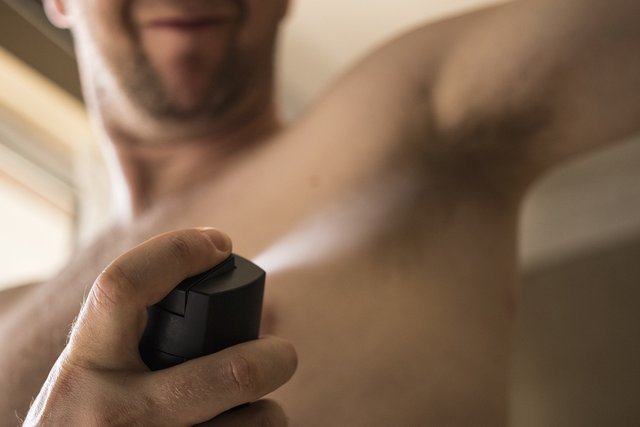
What is Body Odour?
This are Odor produced by the body when sweat comes into contact with bacteria that
are sitting on the skin. While a certain level of body odor is considered normal,
excessive or strong odors may indicate some problems.One day my roommate's friend return from lectures and was saying...
In her words: it's very good to have a pocket ohhh, can you imagine the person that was sitting next to me in class today almost killed me with body odour 🤦...
It's funny how some people have body odour, but they don't know they do.🤦🤦😩😩
Body odour is something we have all been through, either first-hand or in social circles.
It is a biological phenomenon, but when it overpowers, it tends to have serious
repercussions, which might range from your social life to even health implications.
At the same time, Chronic odor may cause embarrassment, social isolation, and even health issues. Let's consider why it happens, what generates it, and how you can avoid it.
The Science Behind Body Odor
There are mainly two types of sweat glands in the human body: eccrine and apocrine.
Eccrine glands occur essentially all over the body and produce a watery sweat
primarily for cooling. Apocrine glands, on the other hand, are found only in a few
parts of one's body, like the armpits and groin area, and their sweats are rich in
proteins and fats. It is here that bacteria will have a feast to form the characteristic
body odour.Bacterial Interaction and Its Effects
Bacteria love warm, moist places and your armpits are the best of them. When it
breaks down sweat proteins and fats, it releases reeking metabolic by-products.
Therefore, odour increases due to sports, in heat conditions, or when a long time is
spent without a shower.

Common Causes of Body Odour |
|---|
- Poor Hygiene Habits:
Poor hygiene is probably one of the most common causes of body odour.
Not taking regular showers or scrubbing off properly the zones may be followed by
bacterial proliferation, which produces a more potent odour. - Dietary Choices Affecting Odour
Food like onions, garlic, and spicy dishes can make body odour worse because of
sulphur compounds in them that are excreted via sweat. - Genetic Predisposition
Some people do have genetically stronger body odours. Genetics determine the type
and quantity of sweat and the way your body breaks down bacteria. - Stress and Anxiety
Emotional stress turns the apocrine glands on to increase production of odorous
sweat. This may just explain why some people feel that they emit a stronger odour when they're nervous or stressed out.
Impact of Body Odour on Social Life |
|---|
Body odour does not spare even the people around you; neither does it save the social
interactions you are a part of. Whatever you look at, comments from judgmental
people or keeping them outside the circle is what usually happens to people suffering
from an unpleasant or persistent odour. This often occurs at workplaces or during
social gatherings, affecting personal relationships-especially romantic relationships
and making them feel uncomfortable and distant.
Psychological Effects of Body Odour |
|---|
High levels of body odour may promote feelings of shame and low self-esteem. The
preoccupation with odour can emotionally drain and socially isolate individuals.
Some may avoid social interactions or create anxiety about personal cleanliness.

If you find it bothersome, there are plenty of ways to manage it:
- Daily Hygiene Habits
Personal hygiene is a primary defense mechanism against body odour. A regular
shower, especially after having aerobics or strenuous physical activity, can remove
sweats and bacteria. Extra attention is necessary on the potential target areas like
underarms and feet.

The Role of Deodorants and Antiperspirants
Deodorants only mask odour, whereas antiperspirants reduce sweat. Combining the
two will yield much better results when it comes to keeping odour at bay.
Prescription-strength antiperspirants may be needed for people with hyperhidrosis or
excessive sweating.Wearing Breathable Fabrics
But clothing can also play a role in odour. Looser, breathable fabrics like cotton allow
air to pass through, reducing trapped sweat that bacteria feed on.Dietary Changes to Combat Body Odour
Some foods can have the effect of worsening or even reducing body odour. Smelly
foods, such as garlic and onions, can raise the odour, while foods with chlorophyll, such as parsley and spinach, tend to neutralize it.
Apple Cider Vinegar
Because it contains antibacterial acids, apple cider vinegar can be used topically on
the skin to kill bacteria and therefore neutralize odour.Baking Soda
Baking soda sucks up moisture and neutralizes bacteria that cause odor. It can be
sprinkled directly onto skin or used as a natural deodorant.Lemon Juice:
The citric acid in lemon juice can help kill bacteria and reduce odor. Apply freshly squeezed lemon juice to the underarms and other sweaty areas, then rinse off after a few minutes.Coconut Oil
Coconut oil has antibacterial properties and, at the same time, can moisturize the skin
too. With the application of coconut oil on the parts of the body more prone to
sweating, one would smell less.Medical Treatments for Chronic Body Odour
Medical treatments may be necessary at times. One can have prescription
antiperspirants for those who experience excessive sweats, while Botox injections can
minimize sweats as they temporarily paralyze the sweats glands. In serious
conditions, one may recommend surgery to remove the sweat glands.
"Only People Who Don't Shower Have Body Odour"
That is incorrect. Even people who bathe daily have body odour in case their sweat
combines with bacteria or when one has a medical condition.
"Body Odour Is Always Due to Poor Hygiene"
Poor hygiene is only one of the contributing factors. Body odour may be linked to
genes, diet, and health conditions even when you are observing good hygiene.
- Environmental Factors That Influence Body Odour
In hot and humid climates, matters are made worse because more profuse sweat
production results. Pollution and other environmental factors can contribute to odour
by affecting skin and sweat chemistry.
Body odour, as a rule, begins to develop in puberty when the apocrine glands become
highly active. Good hygiene habits learned by children and adolescents will be helpful
in controlling their body odour.
Finally, Body odour is a fact of life, but it needn't dictate yours. If you can
comprehend its causes and strive to avoid conditions that give rise to the same, you
needn't feel shy in the midst of people. Be it through good hygiene, diet changes, or
natural remedies, it's completely within one's reach to keep body odour under control.
Image_source: Pixabay
Hello ,
I'm @okere-blessing one of the steem4nigeria moderator, I appreciate your post in our community please do well to put the source of all the pictures used and call my attention back to this post.
Downvoting a post can decrease pending rewards and make it less visible. Common reasons:
Submit
I've added that
My source of pictures used is Pixabay
Downvoting a post can decrease pending rewards and make it less visible. Common reasons:
Submit
Click+hold the image for "copy link" option to display. Then come to your image and do this below it, [sourec](paste the copied link)
This handles it.
Kind regards.
Contact me (telegram/discord @xkool24) if you've not joined the learning center.
Downvoting a post can decrease pending rewards and make it less visible. Common reasons:
Submit